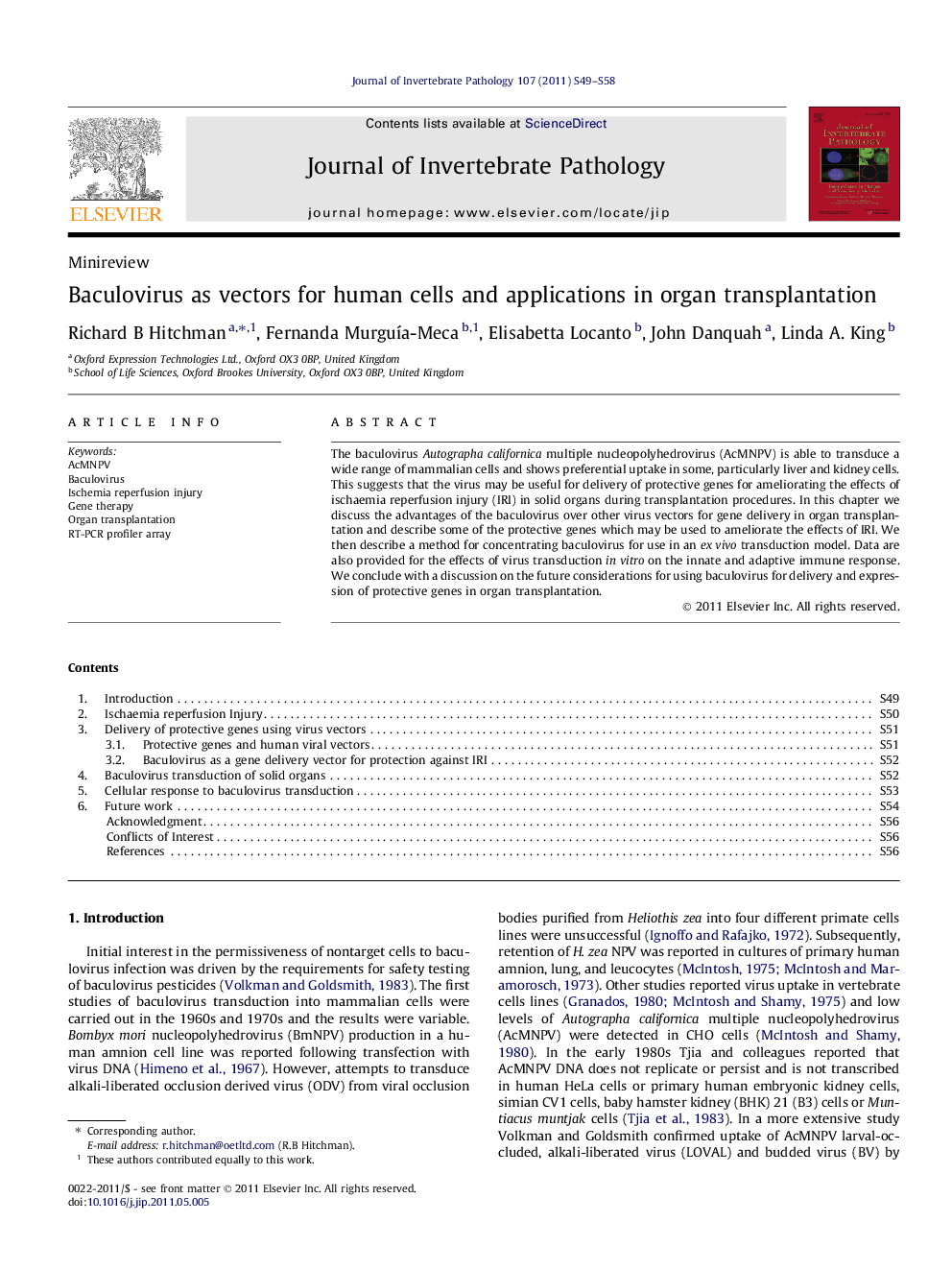| Article ID | Journal | Published Year | Pages | File Type |
|---|---|---|---|---|
| 4557945 | Journal of Invertebrate Pathology | 2011 | 10 Pages |
The baculovirus Autographa californica multiple nucleopolyhedrovirus (AcMNPV) is able to transduce a wide range of mammalian cells and shows preferential uptake in some, particularly liver and kidney cells. This suggests that the virus may be useful for delivery of protective genes for ameliorating the effects of ischaemia reperfusion injury (IRI) in solid organs during transplantation procedures. In this chapter we discuss the advantages of the baculovirus over other virus vectors for gene delivery in organ transplantation and describe some of the protective genes which may be used to ameliorate the effects of IRI. We then describe a method for concentrating baculovirus for use in an ex vivo transduction model. Data are also provided for the effects of virus transduction in vitro on the innate and adaptive immune response. We conclude with a discussion on the future considerations for using baculovirus for delivery and expression of protective genes in organ transplantation.
Graphical abstractFigure optionsDownload full-size imageDownload as PowerPoint slideHighlights► We discuss baculoviruses as vectors for gene therapy in ischemia reperfusion injury (IRI). ► We test different models of IRI in vitro. ► Baculovirus concentration methods are also compared and the addition of PEG is described. ► Using baculovirus for transduction of solid organs is then detailed. ► Finally we determine baculovirus gene expression profiles in cells using RT-QPCR arrays.
